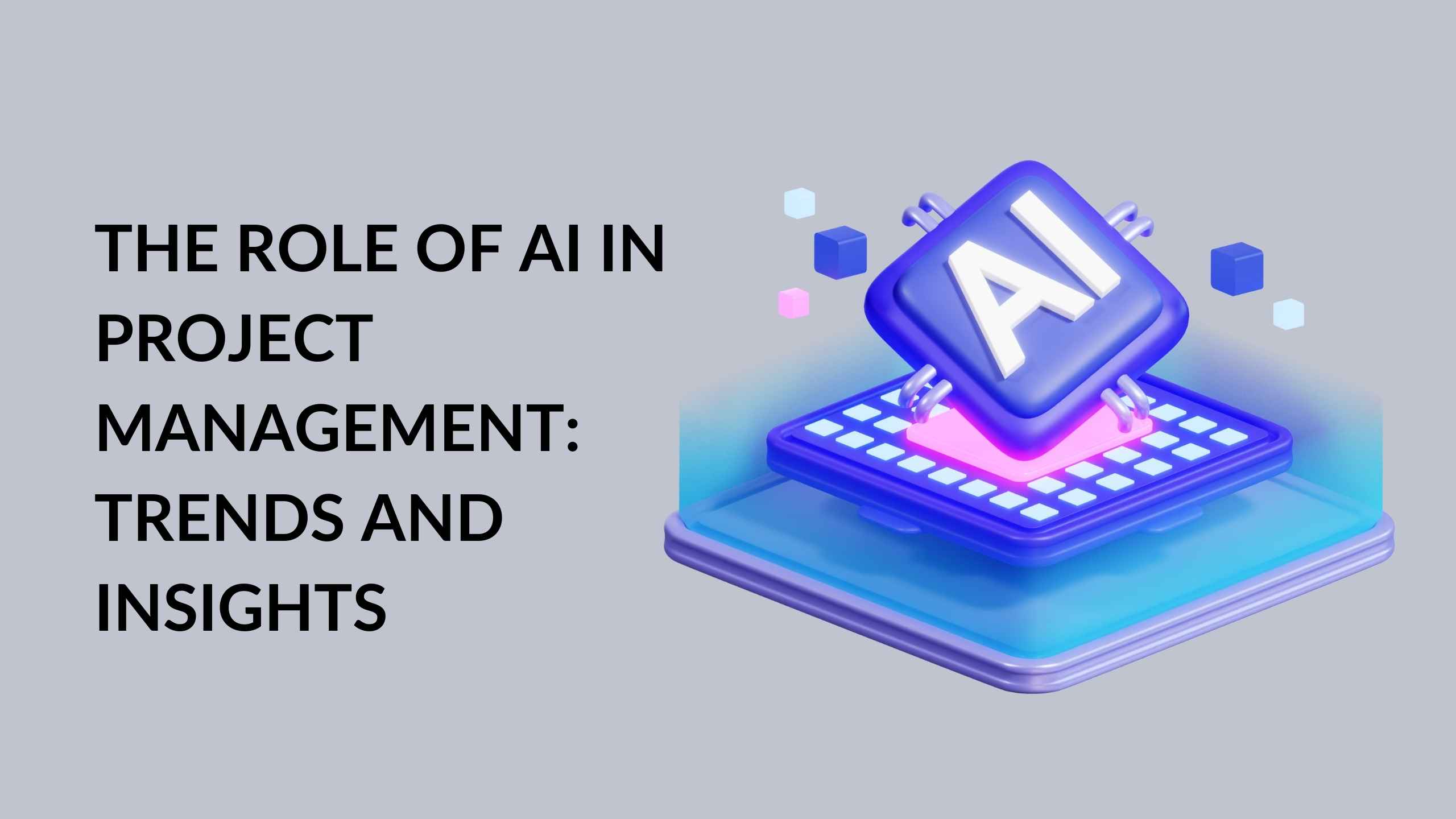The Role of AI in Project Management: Trends and Insights


The Role of AI in Project Management: Trends and Insights
Introduction
In the ever-evolving landscape of business, project management faces increasingly complex challenges. The good news is that technology is stepping up to meet these challenges head-on. Artificial Intelligence (AI) is emerging as a transformative force in project management, offering innovative solutions to traditional problems. In this article, we will delve into the uses, benefits, and considerations of integrating AI into project management processes.
The Uses Of AI In Project Management
Automation: Streamlining Tedious Tasks
No one enjoys handling repetitive and time-consuming tasks. AI-powered management tools are here to alleviate this burden. From scheduling meetings to creating reports and sending project reminders, these tools can automate tasks efficiently. By analyzing each team member’s schedule, the software assigns tasks that align with their availability, ensuring they focus on more meaningful, non-repetitive activities.
Predictive Analytics: Anticipating Risks
Every project involves risks, and AI predictive analytics can play a crucial role in anticipating and mitigating these risks. By leveraging Machine Learning and Big Data, AI systems can predict trends and alert project managers to potential risks. This proactive approach provides ample time for teams to take corrective actions before issues escalate.
Resource Allocation: Optimizing Efficiency
Project managers often juggle various resources, from budgets to equipment and time. AI optimizes this process by analyzing data from past projects, completion rates, employee skills, and available equipment. It recommends how to distribute work efficiently, such as assigning tasks to team members with the right skills or adjusting timelines based on equipment availability.
Project Monitoring: Real-time Insights
Real-time project monitoring and reporting have become essential in modern project management. Unlike outdated reports of the past, AI systems process data in real-time, offering managers timely insights and alerts. Factors such as deadlines, schedules, and task completion are considered, allowing managers to make informed decisions on the spot.
The Benefits Of AI In Project Management
Efficiency: Boosting Productivity
By handling repetitive tasks, AI not only frees up employees’ time but also reduces errors. Automation ensures projects are completed on time, minimizing delays and resource costs. With tasks automated, teams can take on more projects concurrently, as AI acts as additional support working toward common goals.
Better Decision Making: Data-Driven Insights
Analyzing vast amounts of data can overwhelm a person, but not an AI system. AI effortlessly processes information and delivers easy-to-understand insights. Whether analyzing past projects or providing real-time reporting, AI empowers decision-makers with factual information rather than instinct-based decisions.
Cost Reduction: Avoiding Errors and Redundancies
AI not only helps avoid costly errors but also reduces the need for hiring additional staff to handle repetitive tasks. By wisely allocating resources and providing insights into employee capabilities, AI prevents overspending and guides decision-making on equipment and project priorities.
What To Consider
Data Privacy: Safeguarding Sensitive Information
Project management involves sensitive data from project plans to financial documents. Implementing strong data encryption, anonymization, and strict access controls are crucial. Complying with regulatory laws and having a robust tech support and legal team is essential to address any potential breaches.
Integration: Ensuring Compatibility
Implementing an AI tool in your project management system may pose challenges, especially with older software. Compatibility is key. Ensure the AI program integrates seamlessly with your existing stack, considering data handling capacity, increased workload support, and training options for your staff.
Ethics And Biases: Navigating Potential Pitfalls
AI systems can inherit biases from past data, impacting task assignments based on gender, race, or other criteria. To address this, ensure the data used for AI training is diverse and qualitative. Prioritize transparency in AI decision-making, allowing the workforce to intervene and prevent ethical issues.
Conclusion
AI serves as an invaluable ally in project management, offering assistance with mundane tasks and preemptive solutions to potential challenges. Embracing AI provides a competitive edge in even the most demanding industries. However, for AI to truly enhance project management, companies must embrace change, invest in AI tool training, and foster a culture of continuous learning.
For more insights on the role of AI in project management, explore these resources:
- PMI – Shaping the Future of Project Management with AI
- DynDevice – How Artificial Intelligence Is Transforming Project Management
- LIGS University – The Role of Artificial Intelligence in Improving Project Management
- Monitask – The Role of Artificial Intelligence in Improving Project Management
- LinkedIn – Role of Artificial Intelligence in Modern Project Management
Enhance your project management processes with AI, and stay ahead of the curve in the dynamic business environment.





